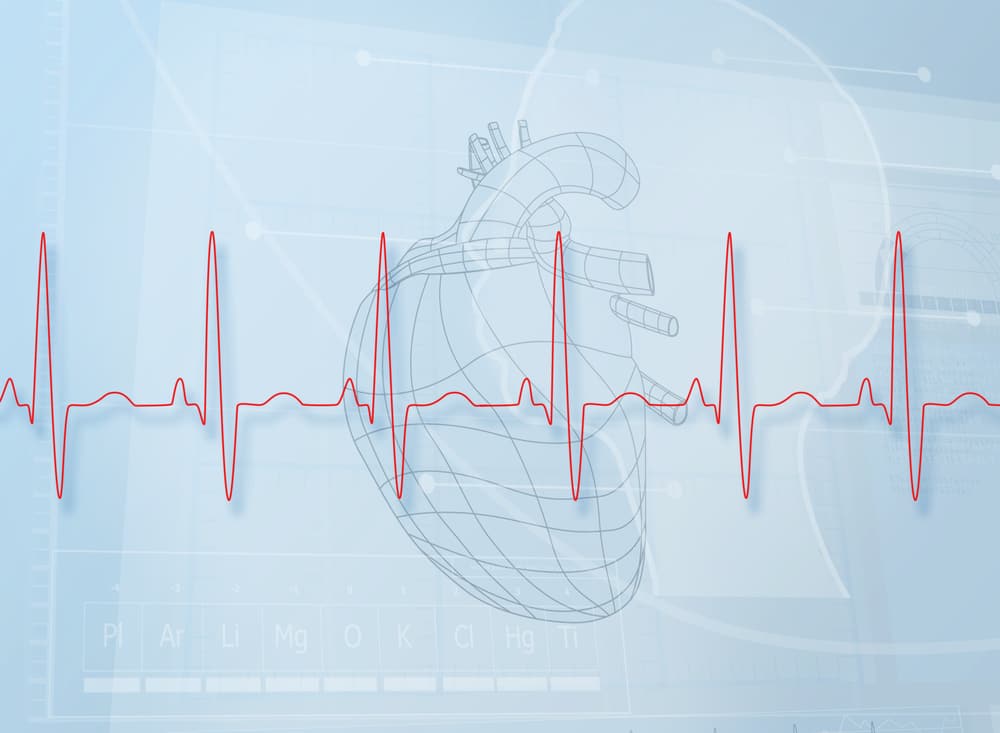Resting Heart Rate can be a strong indicator of overall health and fitness—here are the essentials on why you should measure it and how to lower it.
For decades, athletes and trainers have tracked Resting Heart Rate (RHR) as an indicator of athletic performance. However, RHR is an important biometric for everyone to track as it is an indicator of overall health.
Resting Heart Rate is a measure of how many times the heart beats per minute (bpm) while at rest. It is often measured while standing, sitting or lying down; however, it is best to track it passively while sleeping, as acute stress can highly influence it.
What is a Normal Resting Heart Rate?
The average adult will have an RHR between 60-100 beats per minute, while athletes are likely to rest somewhere between 40-60 bpm. And the lower, the better, as RHR indicates the health of the heart leading to overall longevity, lower risk of heart attack, higher energy levels, metabolic efficiency and athletic endurance.
A resting heart rate below 60 bpm is considered “bradycardia”, but may be common, particularly in individuals with good cardiovascular fitness or individuals taking certain medications. Alternatively, this could be a result of problems with the sinoatrial node or damage to the heart as a result of a cardiovascular event or disease.
A resting heart rate over 100 is considered “tachycardia”, which is often correlated with increased risk for cardiovascular diseases. Increased HR at rest may result in increased work by the heart, as well as indicating an issue with other physiological pathways. If the RHR is closer to 150 bpm or higher, this may be indicative of a condition such as supra-ventricular tachycardia (SVT) requiring medical attention.
What Affects Resting Heart Rate?
- Regular Exercise: It’s important that whatever the exercise may be, it should increase heart rate for an extended period of time.
- Hydration: Staying hydrated helps with blood viscosity and allows the blood to flow through the body more easily, exerting less stress on the heart.
- Sleep: During consistent, uninterrupted sleep, the body rests, repairs, and recovers. Poor or inconsistent sleep can be a large contributor to elevated RHR, putting stress on the heart.
- Diet.:A balanced diet full of healthy fats, whole foods, good sources of protein and fiber as well low sodium, inflammatory oils and processed foods help keep the arteries clear, leading to lower RHR and less work for the heart.
- Stress: Both acute and chronic stress have a significant impact on the heart by increasing RHR. It’s important to incorporate healthy habits and routines to keep stress and anxiety at bay and help maintain a healthy RHR.
- Weight: Extra body weight puts stress on the body and heart.
- Room Temperature: The hotter the body temperature, the faster the heart beats.
- Use of Medications: Treatments for asthma, high blood pressure, thyroid and more can cause changes in heart rate and rhythm.
Why Measure Resting Heart Rate?
As with most biometrics, Resting Heart Rate offers insights into your overall health, indicating general well-being as well as potential health risks which can inform your daily lifestyle choices.
Tracking consistently over time can be beneficial to watch for changes. As previously mentioned, working to lower your RHR is generally beneficial for overall health. This is because the decrease in heart rate reflects increased cardiovascular efficiency and decreased systemic stress. An increase in RHR over time could be an indication of negative cardiovascular changes, and may warrant follow-up testing or lifestyle intervention.
For athletes, knowing your RHR as well as your Maximum Heart Rate (MHR) can help dictate heart rate based training zones. Spikes in RHR can indicate when overtraining has occurred and an athlete should take a rest day, something else in a training regiment is amiss, or can even indicate an oncoming cold or illness.
How to Lower RHR
It’s important to maintain an active lifestyle with regular aerobic exercise, a balanced diet, regular sleep and hydration. If your RHR is high, these are the first factors to assess. Beyond the basic lifestyle factors, a few other steps can be taken to significantly lower RHR:
- Smoking. Regular smoking increases stress on the heart and the cardiovascular system. Cutting back or eliminating this habit altogether may have a positive impact on not only reducing RHR, but on respiratory health and overall well-being as well.
- Manage Weight. Maintaining a healthy weight promotes increased metabolic and energy efficiency and decreases strain on the heart; hence lowering RHR.
- Meditation and breathwork. Controlled, long, and slow breathing can help regulate your heart rate and over time works to decrease RHR as well.
Resting Heart Rate is an important measure of overall wellness for not only athletes but for anyone who wants to optimize their lifestyle. At Biostrap, we’re dedicated to putting you in control of your health by measuring biometrics at clinical-grade accuracy, so you can track and improve your performance and well-being better than ever.
Utilizing proprietary red and infrared photoplethysmography (PPG) sensors, Biostrap’s wrist-worn device captures high-integrity biometric measurements, including RHR, which have been successfully compared to gold standard medical devices.
We believe that the circumstances in which relevant biometrics are captured matter as well. Thus, our focus on nocturnal data collection. Sleep is when the body recovers from and adapts to daily stressors, which then dictates your resilience, recovery, and readiness to perform the following day. Measuring nocturnal RHR reflects some of these changes, providing you with the ultimate insight into how your daily choices impact your physical and mental health, and performance.



